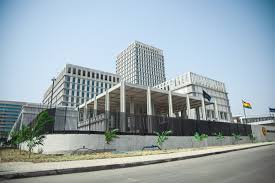Total Forex Inflows to Ghana Through BoG Circa $12 Billion, Says AG’s 2024 Report
Ghana recorded a significant turnaround in its foreign exchange position in 2024, posting a surplus of US$2.43 billion compared with a deficit of US$1.39 billion in the previous year, according to the Auditor-General’s 2024 report on the Consolidated Statements of Foreign Exchange Receipts and Payments of the Bank of Ghana for the 2024 fiscal year.
The surplus, which reflects an improvement of over 274% year-on-year, was driven by a sharp increase in foreign exchange inflows and a modest decline in outflows.
Total forex inflows through the Bank of Ghana rose to US$11.99 billion, up 42.6% from US$8.41 billion recorded in 2023. The increase was supported by export receipts from cocoa and minerals, government loan disbursements, BoG short-term facilities, and earnings from correspondence accounts.
Forex purchases and earnings on correspondence accounts alone contributed US$4.99 billion, accounting for 41.6% of total inflows, up from US$3.21 billion or 38.1% in 2023. The Auditor-General attributed part of the increase to the reclassification of gold and oil-related inflows under mineral exports rather than forex purchases.
In contrast, total forex outflows declined slightly by 2.5% to US$9.56 billion from US$9.80 billion in 2023. The main components of payments included import financing (both energy and non-energy), government loan repayments, interest payments on BoG facilities, and services.
The strong external position also lifted the country’s foreign exchange reserves. As of end-December 2024, reserve assets stood at US$8.63 billion, representing a 46.9% increase from the US$5.87 billion recorded a year earlier.
The improved forex balance comes at a critical time for Ghana, which is undergoing an IMF-supported reform programme aimed at restoring macroeconomic stability and rebuilding external buffers.
Analysts say the strong performance reflects a combination of favourable commodity exports, tighter fiscal controls, and improved central bank liquidity management. However, they caution that sustaining the gains will require continued structural reforms, export diversification, and prudent debt management.








